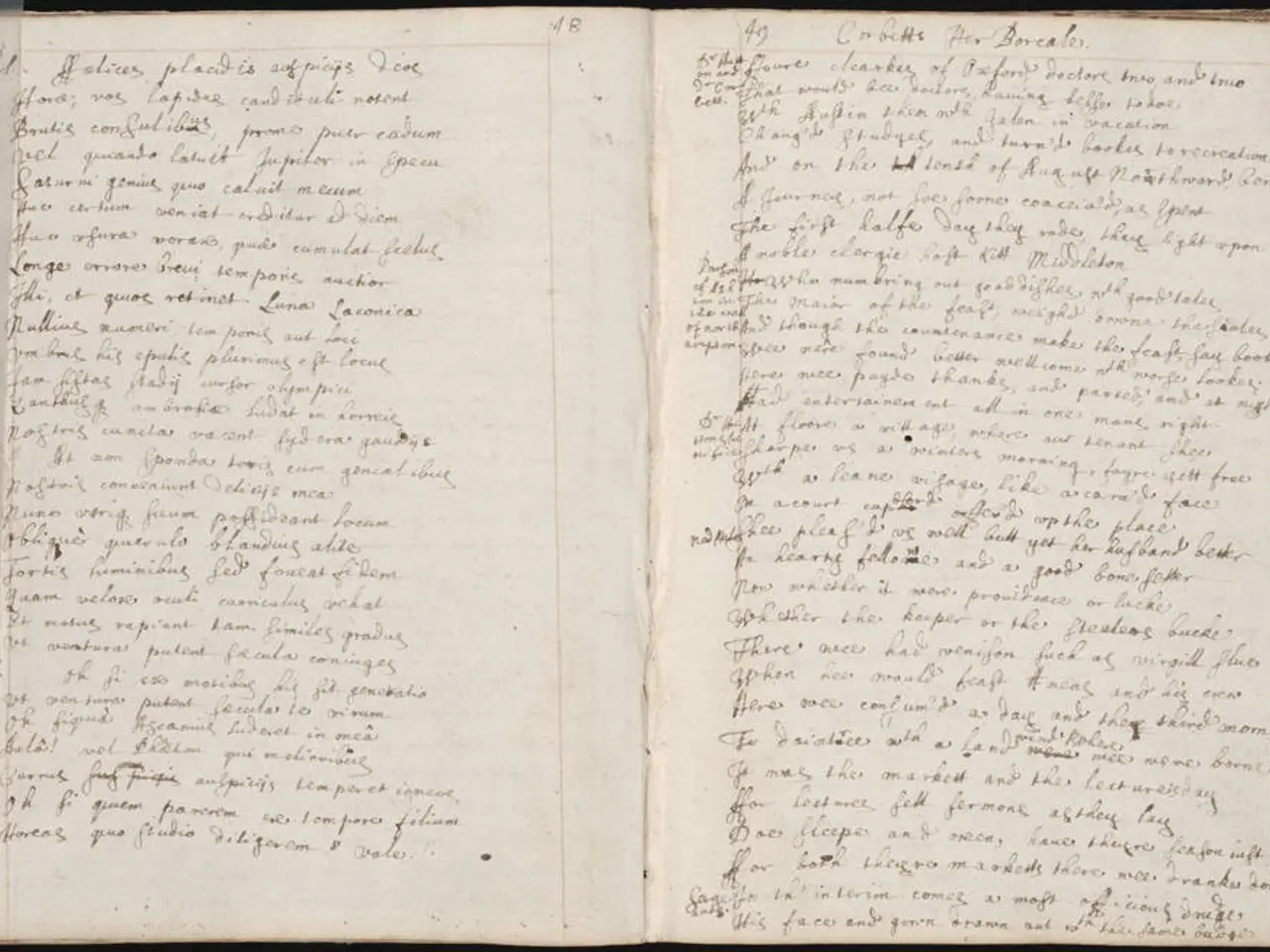Strategies for Mastering Open-Book Assessments
====================================================
Open-book exams, a growing trend in education, challenge students to apply concepts rather than simply regurgitate facts. These exams, as stated by Professor John A. Smith, test understanding rather than memory.
In many professions, it's more about resourcefulness and problem-solving than mere recall. This is echoed in open-book exams, where effective preparation and organization can lead to success.
Emma, a postgraduate psychology student, found this to be true in her first open-book exam. She employed strategies such as meticulous organization, creating summary sheets, and consistent mock testing.
Preparing for open-book exams requires a shift in focus from memorization to understanding. Key preparation tips involve knowing the exam rules and what materials are allowed, organizing your notes and textbook with sticky notes or color-coded tabs for easy navigation, and familiarizing yourself deeply with key concepts.
During the exam, manage your time by answering questions you know first and then using your notes for harder ones. Aim to be concise, accurate, and thorough without over-answering.
Effective note-making should be active rather than passive, helping you engage and make meaning from your study materials. Practice answering old exam questions or creating outlines to improve your ability to retrieve and apply information quickly during the test.
Manage your study time well by spacing learning over days, taking breaks to consolidate memory, and revising at times when you are most alert. Staying calm during the exam and moving on from difficult questions to return later can also help maintain focus and reduce anxiety.
Knowing where everything is in your resources is important to avoid wasting time during open-book exams. Regularly simulating exam conditions and practicing locating information swiftly is an effective way to prepare for open-book exams.
If allowed, using digital tools with search functions for faster access during open-book exams is a time-saving tip. Open-book exams can reduce anxiety for some students due to the ability to consult materials.
The key takeaway from Emma's open-book exam success story is that understanding the material is more important than just knowing where the information is. Over-reliance on materials during open-book exams can hinder understanding, so it's important to understand the material rather than just looking it up.
In open-book exam preparation, students prioritize organizing materials for quick reference. Techniques tailored for open-book exams include thematic organization, using diagrams, highlighting key terms, and avoiding verbatim copying.
Open-book exams, while different from traditional exams, emphasize comprehension, application, and analytical skills. In many professions, these skills are more valued than mere recall, making open-book exams a valuable tool for preparing students for the real world.
- Preparing for open-book exams necessitates a shift from memorization to understanding the concepts.
- Apostrophe notes and color-coded tabs can facilitate easy navigation of your notes and textbook.
- During the exam, managing time wisely involves answering known questions first and using notes for unfamiliar ones.
- Digital tools with search functions can save time during open-book exams.
- Organizing materials for quick reference is crucial during open-book exams to avoid wasting time.
- Over-reliance on materials during open-book exams can hinder understanding, so it's important to strive for understanding rather than just looking things up.




